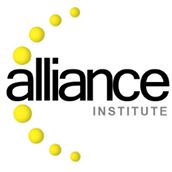 Once upon a time, many years ago, I was at a meeting of organizers, academicians, and theologians and asked, what is that we (the organizers) needed from the others. My response was “paper.” The thinking behind my one word response is based upon a very realistic view of the world we live in versus the way we, as organizers, go about our work. As community organizers, most of our data and information is anecdotal. Unfortunately, as successful as we may be at creating minor changes in the communities we work with, anecdotal information does not allow us to 1) effectively share our strategies and tactics in a way that they can be replicated and/or brought to scale; and 2) convince those we seek to influence (foundations, donors, media, politicians, etc.) that our actions and positions actually have merit beyond minor community changes.
Once upon a time, many years ago, I was at a meeting of organizers, academicians, and theologians and asked, what is that we (the organizers) needed from the others. My response was “paper.” The thinking behind my one word response is based upon a very realistic view of the world we live in versus the way we, as organizers, go about our work. As community organizers, most of our data and information is anecdotal. Unfortunately, as successful as we may be at creating minor changes in the communities we work with, anecdotal information does not allow us to 1) effectively share our strategies and tactics in a way that they can be replicated and/or brought to scale; and 2) convince those we seek to influence (foundations, donors, media, politicians, etc.) that our actions and positions actually have merit beyond minor community changes.
Over the past few years, Alliance Institute has been working considerably with many sectors in the field of public health. A continued frustration has been that of working against long held stereotypes regarding marginalized communities and the organizations that serve them. The lack of an ability to cite peer-reviewed sources to support our positions and actions has only exacerbated that frustration (if one more person mentions best practices…). So when the opportunity presented itself to serve as collector, reviewer, and editor for scholarly articles articulating the veracity of community voice as partner, versus just client/consumer, we jumped at it.
While the goal for this specific project is to begin the process of altering the direction of public health in its relationship to the communities it serves, perhaps a more important goal is to inspire others to begin the process of producing scholarly publications for the support of the important work of community change via community organizing. Besides, Paolo Freire* can use the company.
*Paolo Freire’s Pedagogy of the Oppressed is easily the most recognized scholarly piece cited and referred to by workers in the field of social justice.
